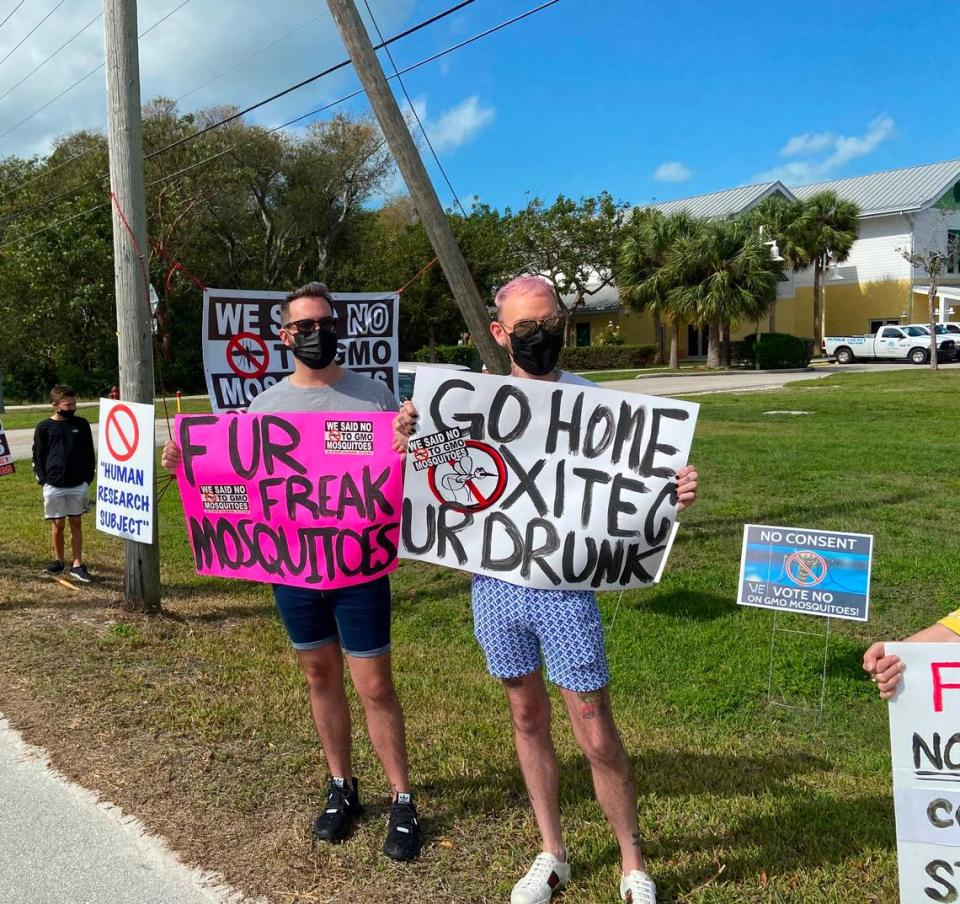When and where will millions of mosquitoes be released? Here are details for Florida Keys
By April, millions of genetically modified mosquitoes could begin to be released in dozens of areas up and down the Florida Keys in an unconventional and controversial experiment to reduce or eliminate an invasive species of bug responsible for the transmittal of deadly diseases like zika, dengue fever and chikungunya.
The Florida Keys Mosquito Control District announced this week a wide and vague planned range of deployment for the lab-designed mosquitoes — neighborhoods from mile marker 10 to 93.
The trial is being conducted by British biotech company Oxitec. It’s a method approved by the U.S. Environmental Protection Agency, the state of Florida, and the mosquito control district’s five-member board, to try to eradicate or significantly reduce the local population of Aedes aegypti mosquitoes.
Despite the multi-agency approval, many Keys residents oppose the project. A group of about 20 people protested the trial Sunday outside the Murray Nelson Government and Cultural Arts Center in Key Largo.
Among their stated concerns were potential unintended consequences of introducing a genetically altered species into the local environment and Oxitec’s track record conducting similar trials in other countries.
“Our community is about to be experimented on with a man-made species that numerous recognized experts in genetic engineering have objected to,” Barry Wray, executive director of the local conservation group, the Florida Keys Environmental Coalition, said Wednesday.
Oxitec, however, contends trials of its genetically modified mosquitoes in countries like Brazil, the Cayman Islands and Panama have shown the company’s technology proved successful in reducing Aedes agypti mosquitoes while causing no harm to the flora or fauna of those places.
“This is not a trial of an unknown technology; it’s a demonstration in the United States of a technology that has already been shown elsewhere to be safe and effective,” Ross Bethell, Oxitec spokesman, said in an email Wednesday.

The plan is to place 130 boxes full of millions of genetically altered male eggs throughout the trial areas. Water will be added, and the male bugs will fly among the local population and mate with the females.
A “death mechanism” designed into the mosquitoes is meant to ensure no viable female offspring will result from the mating, according to Oxitec. The male offspring will pass on the “self-limiting gene” to half of their offspring. Female mosquitoes are the only ones that bite and feed off humans.
Chad Huff, spokesman for the mosquito control district said about 130 boxes will be placed in the yards of Keys resident volunteers throughout the course of the project, which is expected to last about 28 weeks.
The trial will begin “no earlier than April,” Huff said.
